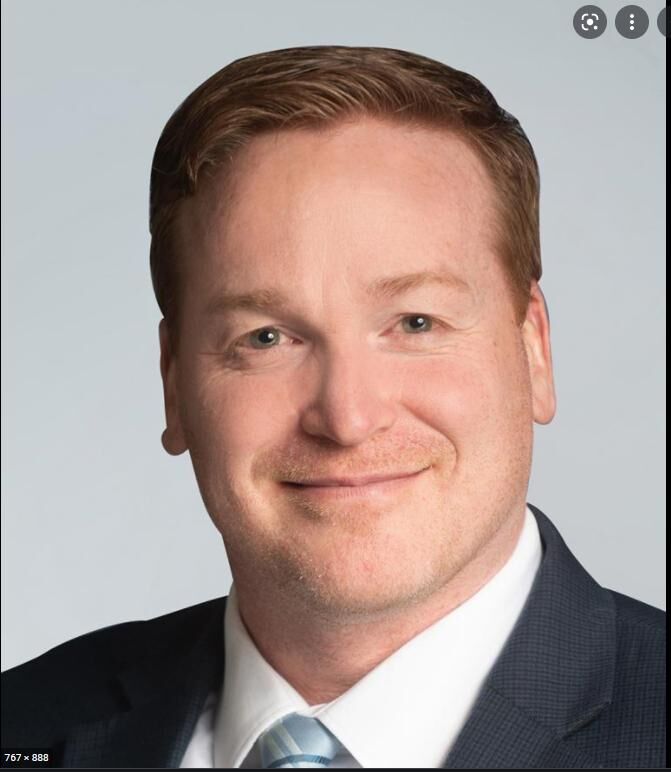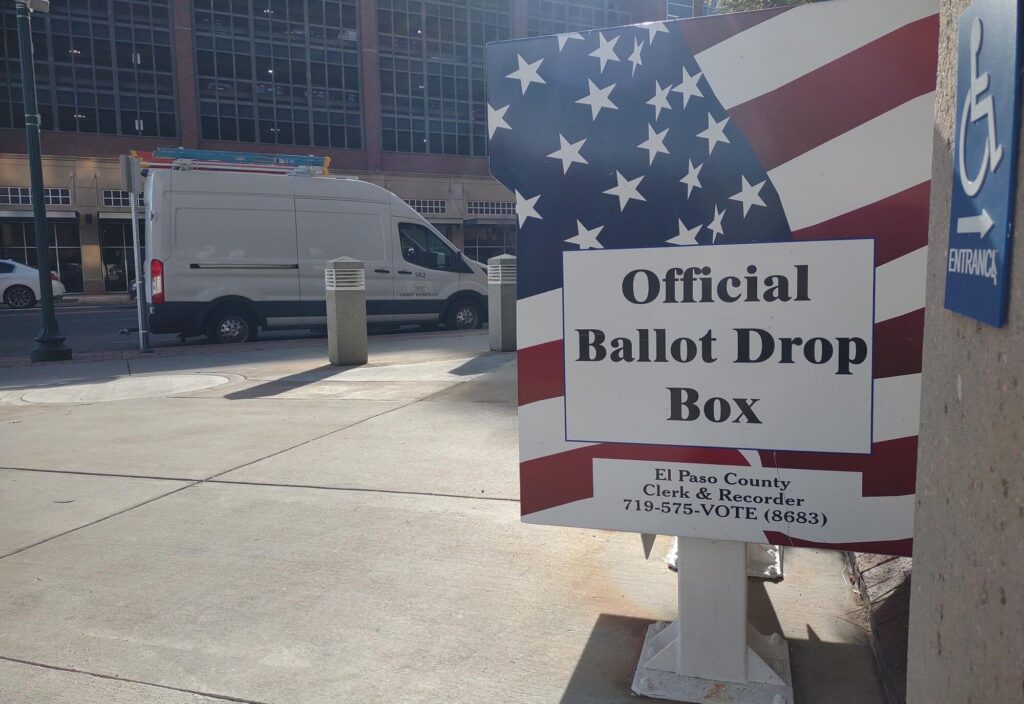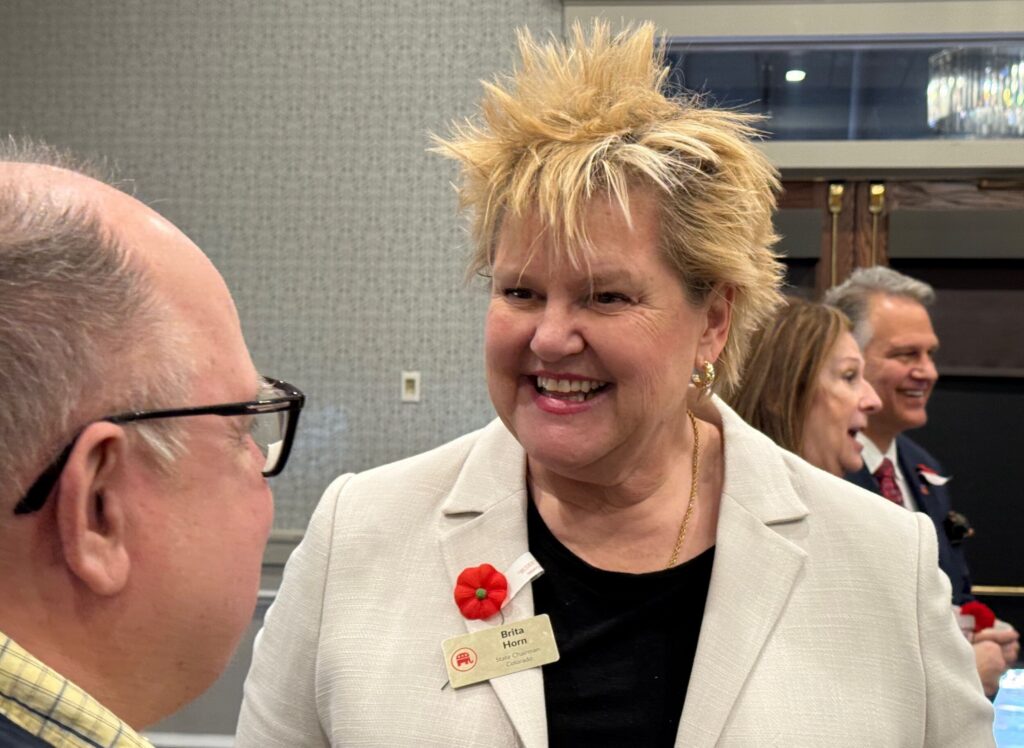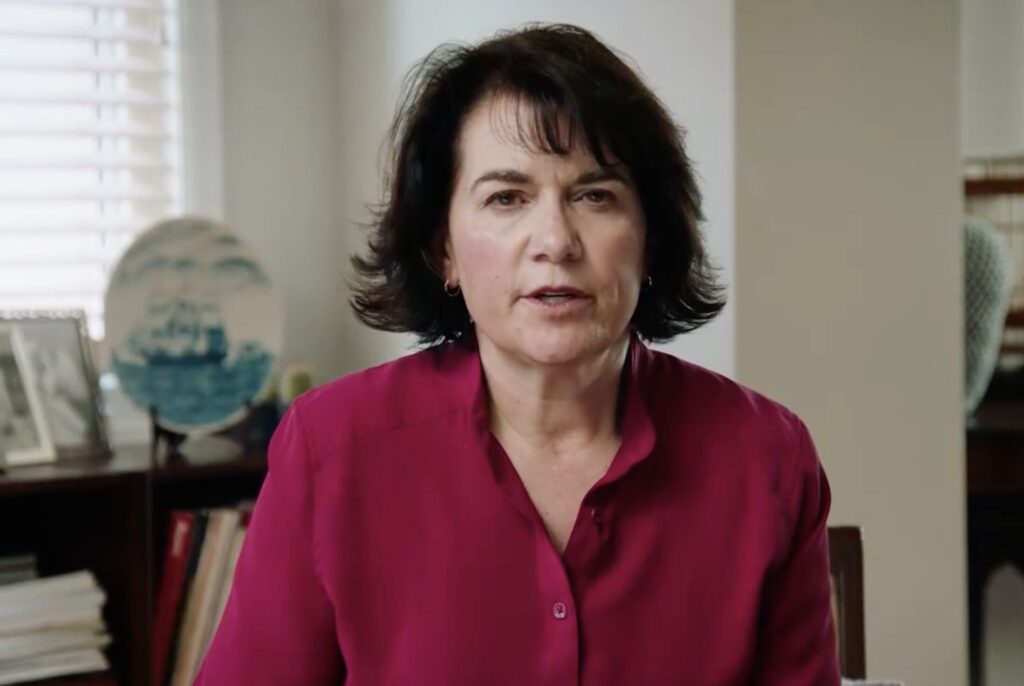Robert Werthwein to step down from state Office of Behavioral Health

Robert Werthwein, the director of the state’s Office of Behavioral Health since Sept. 2017, will resign at the end of February next year, he announced in an email Tuesday.
Axios Denver, which first reported his resignation, said he did not cite a reason for his resignation, only that he intended to pursue other opportunities. A spokesperson for CDHS said Werthwein told CDHS and its employees last week of his intention to step down.
News of Werthwein’s announcement came amidst serious questions surrounding the state’s ability to care for residents facing mental health challenges and whether a new state agency – created solely to focus on this issue – will become yet another layer of bureaucracy that spends money but fails to improve services.
Michelle Barnes, executive director of the Colorado Department of Human Services, said in a statement Thursday that Werthwein’s decision to leave is a “personal one that he made after much reflection and prior to recent events.”
She added: “No one asked for Robert’s resignation. As all of you are aware, throughout our careers we make decisions about where we want our careers to go. The best decision for Robert is wherever he feels he can serve Colorado best – even if that means away from CDHS.”
The Office of Behavioral Health, which is a division with CDHS, operates the state’s two mental health facilities – the Colorado Mental Health Institute at Pueblo and the Colorado Mental Health Institute at Fort Logan – as well as the Division of Community Behavioral Health.
A budget briefing presented yesterday to the Joint Budget Committee pointed out that the office contracts with 17 community mental health centers, which are 501(c)3 nonprofit organizations. An investigation by the Colorado News Collaborative (CoLab), published Dec. 5, detailed serious problems within those community mental health centers, such as non-compete contracts and a privileged provider rate status “without meaningful oversight.”
The CoLab report also noted that Colorado is ranked 51st – dead last – on its access to care for adults with mental health disorders.
In a Dec. 7 letter to Gov. Jared Polis, mental health advocates and five rural county commissioners pleaded with him to take action to address the mental health centers’ “lack of transparency, their inequitable payment practices, and their failures to serve Coloradans with greatest needs.”
They said many of these issues are known, but that the CoLab report revealed the “depth, pervasiveness and serious nature of these problems.”
They added: “We as a coalition of advocates and elected community representatives have heard about gaps in our safety-net from Coloradans with lived experience for far too long, and they cannot wait any longer.”
A Dec. 7 letter sent to Gov. Jared Polis, asking for action on the failures of the community mental health system.
It isn’t only adults who struggle to find help from the state. In May, Children’s Hospital declared a state of emergency for youth mental health and last month called upon the governor and General Assembly to spend at least $150 million to confront the challenge. Suicide is the leading cause of death among youth 10 to 24 years old, Children’s officials said.
Indeed, children may also be falling through the cracks in services at community mental health centers.
A 2020 report from the OBH Child Mental Health Treatment Act program noted that some community centers withdrew from the program that serves children, citing requirements of a 2018 law they could not manage, such as pass-through billing and intensive clinical care coordination with multiple providers. Those withdrawals created a “critical gap” in the state, the report said.
The pandemic has made the situation that much worse. The CoLab investigation found that the community mental health centers have been serving fewer clients during the pandemic while sitting on millions of dollars in reserves, and that the system “created a financial incentive for the centers to take on fewer ill people and charge higher costs.” That included charging the state – and thereby taxpayers – “up to 17 times more for services” than what independent Medicaid providers charge.
The report also said some centers are being paid for programs they don’t provide, with no apparent oversight from the Office of Behavioral Health.
Werthwein acknowledged the problems raised in the CoLab report, saying “the centers and the state have been failing people.”
The community mental health division of the Office of Behavioral Health is expected to be the foundation for a new state division, the Behavioral Health Administration, which is set to launch on July 1, 2022 and be fully implemented by 2024. At least for now, BHA will remain with the Department of Human Services.
But questions about whether a new state agency will actually improve the situation for those seeking help arose Wednesday during the JBC briefing.
JBC analyst Craig Harper told the JBC that critics believe the BHA will become just another level of bureaucracy. He also noted that creating a new standalone department would not be allowed under the state Constitution, given that the Constitution limits to 20 the number of principal departments. (The 20th department – the Department of Early Childhood – was enacted through legislation during the 2021 session.)
Harper’s analysis also raised questions about whether creating a new state division would actually improve mental health services. Harper said a Nov. 1 plan submitted by Human Services doesn’t actually touch on that issue.
“There’s real risk” that this will become a layer of bureaucracy but without any real effect on behavioral health, Harper warned.
Sen. Bob Rankin, R-Carbondale, the JBC’s senior member, also expressed skepticism about the creation of the BHA, calling it “bureaucratic entropy.” He likened it to rearranging the deck chairs on the Titanic.
“We should always start with the people and what they need” and from the bottom up, Rankin said.
Harper’s analysis said “the plan for the BHA does not involve large scale movements of programs between agencies. Instead, the plan focuses on placing responsibility for leadership and coordination with the BHA but leaving nearly all of the existing programs in place in their current departments, at least for the time being.”
Werthwein called the lack of a plan for improving services an “oversight,” according to CoLab.
In his resignation letter to the department, Werthwein said that, with the creation of the BHA, the state will “see many exciting changes to behavioral health in Colorado. With those changes, the OBH executive leadership structure is going to look very different in the coming months. I am writing to ask for your assistance in finding strong candidates for several new leadership positions, including my successor as Office Director.”
“As for the BHA, I am happy to say that the recruitment effort for a BHA Commissioner is well underway,” Werthwein added. The goal, he said, is to for the new commissioner to start early next year and that the agency will also be soon searching for a deputy commissioner. He said most of the Community Behavioral Health team will transition over to the BHA.
Werthwein noted CDHS has opened a search for both a new OBH director and deputy director for a new office that will encompass Forensic Services and the Mental Health Institutes, which will not transition over to BHA. The position is called OBH Director but the individual selected will ultimately lead the new, renamed office. The vast majority of Office of Behavioral Health employees – the MHI and Forensics teams – will be part of this new office.
“I am very excited about these new positions and eager to have good leaders in those roles,” Werthwein said. “At this time, I am seeking new opportunities outside of CDHS. I plan to continue to serve as OBH director until the end of February to work with the new commissioner to support a successful transition of programs into the BHA and to onboard the new office director.”
Barnes added that Werthwein informed her in October that he planned to leave OBH at the end of February. “Robert has been an important and integral part of our team at CDHS for nine years, and I know he’s been a dedicated advocate for Coloradans and an ally for all of you. He is leaving a hole that will be difficult to fill and it was with great sorrow that I accepted his resignation.
She also said recent media coverage “has inaccurately tied Robert’s departure, which was announced to stakeholders this week, to negative reporting on the mental and behavioral health system. I want to be very clear – anyone implying media coverage had any impact on Robert’s future here is spreading rumor and speculation. Any such allegation couldn’t be further from the truth…Robert has been a driving force in improving access to care in Colorado. He has championed youth and family support, and the need for holistic services that are people-focused. He started his CDHS career at the Office of Children, Youth and Families, where he worked to eliminate detaining 10- to 12-year-old kids for misdemeanors. He won the Friends of Children Award from CASA for his work with children in the child welfare system.
During his four-plus years at the Office of Behavioral Health, he has helped lay out the vision for behavioral health reform and met the charge from Governor Polis to design a system that puts people first. Robert cares deeply about the people we’re trying to help, and he is always full of big ideas on how we can do better.
I cannot stress enough the value, integrity and leadership that Robert brought to CDHS, youth and families, and behavioral health work in this state. We support him and wish him the best in future endeavors after he departs in late February.”
Werthwein joined the agency in February 2013 as deputy director for the office of Children, Youth and Families at CDHS. He became the office director in April 2015.
When then-CDHS Executive Director Reggie Bicha elevated Werthwein to director of the Office of Behavioral Health in 2017, he praised Werthwein as “a dedicated public servant and consummate professional. His deep experience in early childhood mental health combined with his strong leadership running 24/7 facilities for CDHS position him well for success in this new role.” The Court Appointed Special Advocates (CASA) group named Werthwein a “friend of children” just a month later.
Both deputy directors at OBH moved on to other positions in the past several months. Victoria Trapp, previously deputy director of programs, was named CEO of the Colorado Mental Health Institute at Fort Logan in August. Tony Gherardini, deputy executive director of operations and interim director for community behavioral health, was named Executive Director of the Colorado Department of Personnel and Administration last month.













